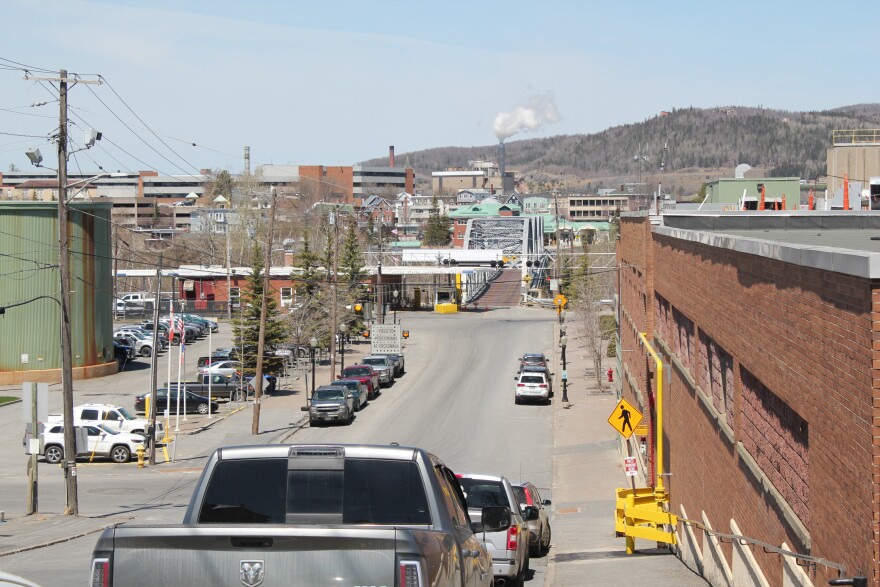When COVID-19 hit the U.S. more than a year ago, one of the first steps the country took was to close its northern border with Canada. Essential travel is still allowed, but more casual trips have been banned, and are likely to remain so for the foreseeable future as daily case counts stay elevated in both countries.
All those changes have drastically affected life in northern Aroostook County, where families often straddle the border and have in some cases traveled back and forth multiple times a day between, say, Madawaska and nearby Edmundston, New Brunswick, to see each other.
For more on how life has changed along the border, Maine Public's Robbie Feinberg spoke with Sharon Boucher, director of the St. John Valley Chamber of Commerce.
This interview has been edited for clarity.
Feinberg: So let's start with last year when the pandemic forced the border to close. What did that mean for the St. John Valley?
Boucher: Well, what happened here, especially in Madawaska, we have a lot of cross-border relations. So a lot of people who had either fiancees or grandchildren or whatever, were separated immediately. And we have one owner of a business here in town, who his fiancee lives in Edmundston. And they were separated for months and months before they were allowed to even cross for a short meeting. We've all got families on both sides of the border. And so that's been I think, the hardest thing, along with the business aspect, of course.
You mentioned those family ties that so many people have across the border. How are people staying connected?
Well, they're doing a lot of Skype and Zoom and everything else. Like I know of one person whose mother is here, and the son lives in Edmundston, and she needs care. So what he and his wife do is they move to Madawaska for three months time, then he has to move back to Canada and quarantine. And they do that on and off throughout the year, because that's the only way they can do it.
With having to find all these workarounds, how are people holding up emotionally?
Very, very hard, especially the grandchildren. That makes it very, very hard. Everybody wants to hug their grandchildren. Some have had new grandkids born that they haven't seen yet. You know, that sort of thing. Also the death, the funerals, you know, no real funerals and not being able to support the family members for that. And then family reunions are canceled. Like I know, I haven't seen my granddaughter in a year and a half now. So you know, it's difficult.
The other piece of this, as you mentioned, is the business piece, that so many businesses rely on those people visiting from Canada. How are they getting through this?
Well, initially, it was a really big hit. Because let's say our convenience stores, gas stations really rely on the Canadian dollar, the Canadian customer. Because fuel is less expensive here on this side and products like milk and chicken and all that, the Canadians were coming over a lot for that. And a business sort of relies on certain sales that they know are going to come through, they buy certain product for that. So it was a big hit at the beginning. And some businesses, you know, really thought they might not make it because that was so essential to their business. But you know, people started thinking outside of the box, started working differently. Of course, some people were let go because they have too much staff for the business they had, but they worked around it and were able to keep their businesses going, which is a credit to them. But it has been financially draining for this community. Like I said, the convenience stores, the grocery stores, restaurants, a lot of Canadians, you know, visited our restaurants, retail also. So it's hit all over the place. And everybody's sick of this closure.
So obviously the virus and the progress of vaccines are going to be what ultimately determines what happens around the border over the next few months. But what do you think it'll be like when that border does open?
Oh, my gosh. I mean, if that opened up, I think we'd throw a parade. It would be so exciting. You know, both Canadians and Americans are anxious for this to open. That would that would mean a lot to our community and, of course, increase sales again.




